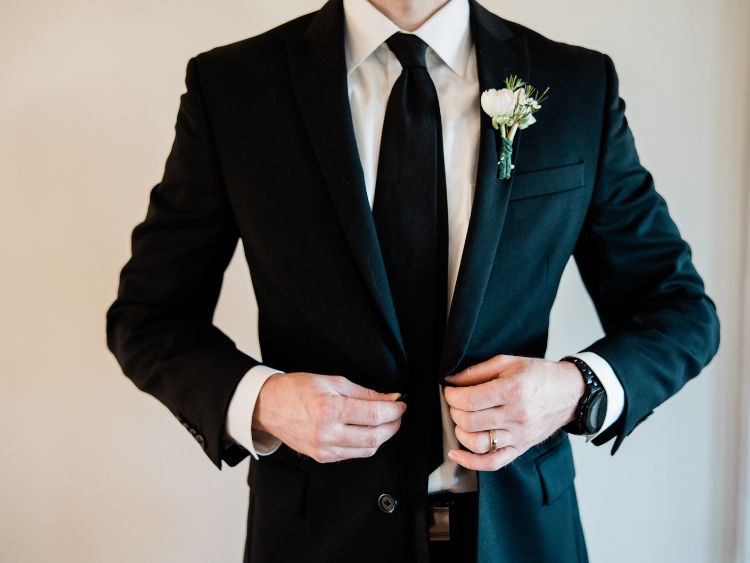Wedding Planning – The Path to Your Perfect Day
When it comes to wedding planning, it’s like a blend of excitement and a touch of overwhelm. The journey to “I do” is thrilling, yet it requires some serious preparation to create the celebration you’ve envisioned. Whether you’re crafting an intimate gathering or a grand affair, this guide will walk you through the steps of organizing your big day.
Setting the Foundation: Budget, Date, and Style
Let’s face it; before you dive into the details, you need a solid foundation. Start by setting a budget, picking a wedding date, and defining your style.
1. Establishing Your Budget
Your budget sets the stage for all decisions to come. Sit down with your partner, discuss your financial priorities, and decide on a number that feels comfortable.
- Breakdown Costs: Allocate funds for the venue, catering, attire, decorations, and photography. Remember, small expenses can add up.
- Prioritize Your Spend: Spend more on what matters most, whether that’s food, flowers, or photos.
2. Choosing the Perfect Date
Your wedding date can be influenced by several factors like seasonality, guest availability, and venue booking times. Consider the following:
- Season: Each season offers unique charm. Fall is cozy, winter is magical, spring is vibrant, and summer is sun-kissed.
- Availability: Check if family members, close friends, and your must-have vendors are available.
- Budget Considerations: Off-season dates or weekday weddings can be budget-friendly!
3. Deciding on a Wedding Style
Is your wedding style classic, rustic, modern, or bohemian? Defining this will help narrow down your choices for decor, attire, and venue.
Choosing the Right Wedding Venue
The venue is one of the most significant decisions in wedding planning because it influences the feel and flow of your entire event.
- Indoor or Outdoor? Outdoor weddings are stunning but can be tricky with unpredictable weather. Indoor venues often provide a reliable setting.
- Guest List Capacity: Ensure the venue can comfortably hold all your guests.
- Personal Touches: Look for venues that allow custom decorations to infuse your style into the setting.
Popular Venue Types
- Ballrooms: Perfect for a classic, formal vibe.
- Barns and Gardens: Great for rustic or bohemian themes.
- Beaches: An idyllic spot for couples who love the sun and surf.
Wedding Vendors You’ll Need
Once you’ve set your date and venue, it’s time to book vendors. From photographers to caterers, your vendors are the backbone of your big day.
Must-Have Vendors
- Photographer and Videographer: Capture the moments that matter.
- Caterer: Decide on a plated meal, buffet, or family-style service.
- Florist: Coordinate blooms with your color palette and theme.
- DJ or Band: Set the mood with the right music.
- Planner or Coordinator: A professional planner can relieve stress by managing logistics.
Booking Tips
- Start Early: Popular vendors book up fast, so it’s wise to start searching about a year in advance.
- Read Reviews: Check online reviews and ask for recommendations from friends and family.
- Meet in Person: A personal meeting helps ensure you and your vendor are on the same page.
Building Your Guest List
The guest list can be one of the most challenging parts of wedding planning. Your list affects your budget, venue choice, and even the catering.
- Set a Limit: Start with a rough number and adjust based on your budget and venue capacity.
- Prioritize Guests: Immediate family and close friends first, then extended family, followed by colleagues or acquaintances.
- Send Out Save-the-Dates Early: This helps guests mark their calendars and make travel arrangements if necessary.
Wedding Attire for You and Your Wedding Party
Choosing what to wear is a big decision and should reflect your personality, style, and the vibe of your wedding.
The Bride’s Dress
Wedding dress shopping is an experience in itself. Consider these points:
- Comfort and Style: It’s your day, so choose a gown that makes you feel confident and comfortable.
- The Venue’s Influence: A beach wedding calls for something lighter, while a ballroom might inspire a dramatic gown.
- Accessories: Veils, jewelry, and shoes complete the look.
The Groom’s Suit
For grooms, there are several options, from classic black tuxedos to laid-back linen suits.
- Coordinate with the Bride’s Style: This ensures the overall look is cohesive.
- Consider the Venue and Theme: Formal tuxedos work well in traditional settings, while lighter suits suit outdoor or beach weddings.
The Wedding Timeline: A Month-by-Month Breakdown
To keep you on track, here’s a timeline to guide your planning:
12-9 Months Before
- Book your venue and vendors.
- Decide on your guest list.
- Choose your wedding party.
8-6 Months Before
- Send out save-the-dates.
- Start shopping for attire.
- Create a gift registry.
5-4 Months Before
- Finalize your menu and décor.
- Order invitations and hire any remaining vendors.
3-2 Months Before
- Send out formal invitations.
- Confirm details with vendors.
- Plan your wedding timeline with your coordinator.
1 Month Before
- Try on your attire.
- Confirm headcounts with the venue and caterer.
- Prepare final payments for vendors.
Wedding Planning FAQs
How early should I start planning my wedding?
Ideally, start about a year before your wedding day. This allows enough time to book your favorite vendors and avoid last-minute stress.
How much should I budget for a wedding?
Wedding budgets vary widely, but the average cost in the U.S. hovers around $30,000. However, intimate ceremonies can be much less, while luxury weddings can soar beyond that.
Do I need a wedding planner?
While not necessary, a planner can save time and reduce stress, especially if you’re planning a large wedding.
How do I handle seating arrangements?
Create a floor plan and group guests by commonalities like family, friends, or colleagues. Apps like AllSeated make seating arrangements easy.
What should be included in a wedding checklist?
Your checklist should cover major areas like budget, guest list, venue, vendors, attire, and day-of schedule.
Conclusion: The Key to a Successful Wedding Planning Journey
Remember, wedding planning should be as enjoyable as it is organized. By breaking down tasks, sticking to a timeline, and staying true to your vision, you’ll find the process not only manageable but enjoyable. Your wedding day will be a reflection of your love, style, and the life you’re building together. Cheers to planning a day that’s unforgettable in every way!
Authoritative Links (Plain URLs)
- The Knot: www.theknot.com
- WeddingWire: www.weddingwire.com
- Martha Stewart Weddings: www.marthastewart.com





